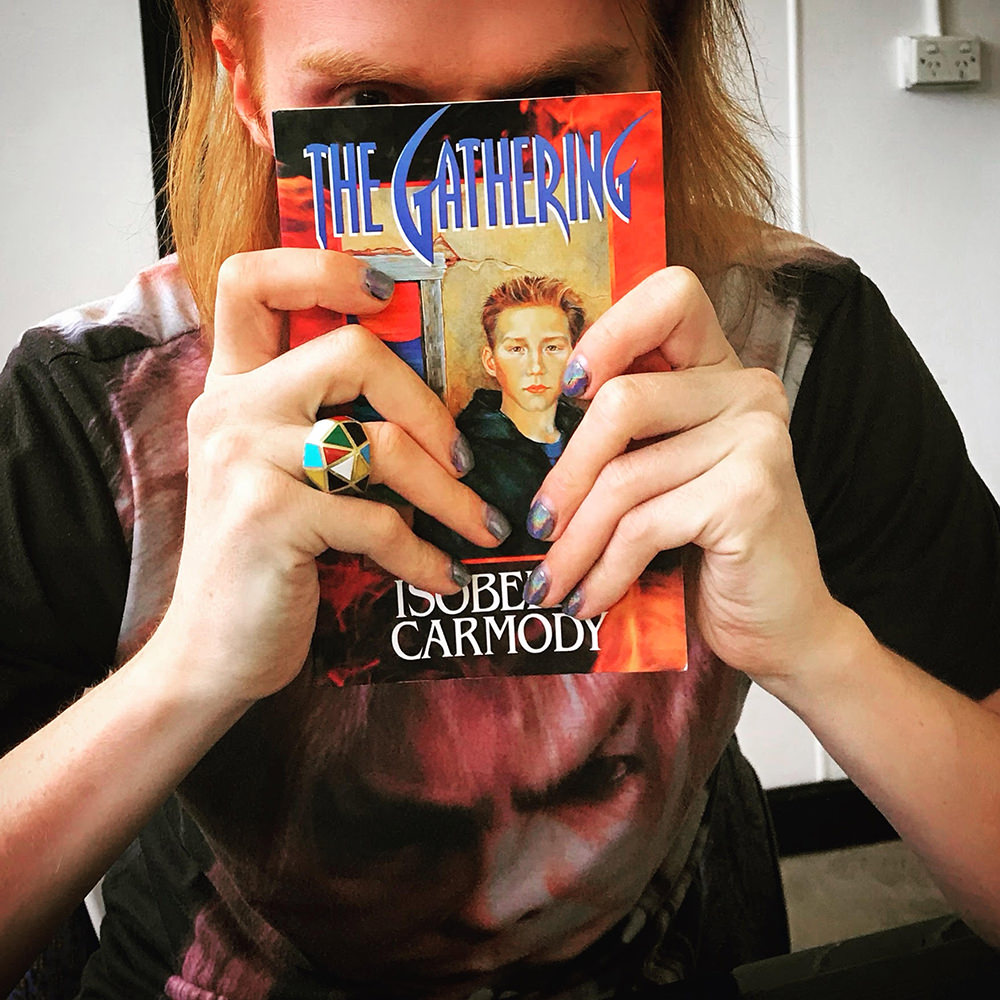When Verso re-read The Gathering, he was immediately inspired. “… It felt more relevant today than it did then in a strange way because when it was written in the 90s, the world felt like a much safer place than it does right now. And now the world feels a little more dangerous and it feels like there's more of a generational divide …”
The main difference, Verso notes, was that it no longer felt like a feature film.
“It felt like television, in the best possible way … Television stories are much more bold and much more interesting than they've ever been.”
Verso approached Carmody in June last year, and over dinner, made his pitch. “I said, ‘So this is what I love about the book, this is what I would want to do to it, and this is how I would adapt it’. And because they're her characters and it's her world and it really is her story, I needed to reassure her and let her know that her babies were going to be in safe hands.”
They clicked, and Carmody gave her blessing.
 Nicholas Verso
Nicholas Verso
Industry support
In August 2018, Verso made an uncommon move: he sought development funding from Screen Australia without a producer attached. The Federal agency had just launched its new Generate Fund, designed to support emerging and more established film and television makers, without a reliance on traditional funding demands relating to eligibility credits and producers.
It helped that Verso had Carmody’s permission to recreate her story for television. As one of Australia’s most-loved Young Adult authors it “made sense” for her work to be adapted to the screen. He says it was also “an obvious progression” in his work following his feature and short film work.
“[Screen Australia] knew I was directing television and they could also see that there are struggles for writers and directors in terms of having autonomy,” Verso says. “I think some directors are journey people, where they will happily just come in and serve the producers' vision and some are more authored than that, and they [Screen Australia] could identify that I was someone who had a voice and the desire to find my own ideas and my own concepts and bring them forward.”
Craig Irvin, Nicholas Verso and Kodie Bedford
Verso believes his application also showed, post-Churchill Fellowship, that he had an expanded skillset he was ready to apply. And very importantly: “I was really clear about my audience. I really knew who this was for.”
That audience would be what Verso argues is a “dangerously neglected audience in Australia” – the teenage audience, a segment for which film and television is not creating content.
“And we're losing them to American content,” Verso says. “And I think it's a really dangerous moment because we've always created world class children's television … yet we let go of them at age 12 and just hope we get them back. [Yet] there are so many people in their 20s and 30s who aren't engaging with Australian screen stories the way they should.”
Verso believes this passion was clear in his funding application, but he notes also that with the influx of streaming services, creatives are “liberated” from time slots, which traditionally saw networks focus on older audiences. Now is the time for Australian stories for younger audiences.
And he wasn’t alone in his efforts. Verso applied with a writing team on board, namely Craig Irvin and Kodie Bedford, both of whom he had worked with on other projects.
By November last year, they were in the writers’ room to construct a television series that would ultimately be set in the present day.
Verso admits the story was “hard to write”. “I'd set the bar high for myself and I really wanted it to be excellent. So, it did take some time to write and to get the toning right because ... the references weren't obvious I guess.”
In Australia, he adds, “we're still training our genre muscles”.
The path to completion
Verso has written the pilot and a bible for the show, and is in discussions with producers. The next step is taking it out to market. And while it has taken shape at a rapid pace by industry standards, Verso puts this into context.
“I guess whenever you've got an easy run on a project, it's normally because you've had a harder run on a thousand others,” he laughs. “If a project looks like it got up really quickly, chances are there's a few that didn't, and you've learned the lesson of those …”
Verso says listening to what the market was saying was important. “… Listening to what producers are saying, and then listening to your own instincts as well and where you saw gaps. And to me it was about what can I offer the industry, what can I give that no one else seems to be doing?”